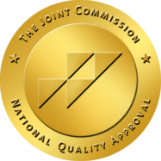
Dialectical Behavior Therapy for Addiction Treatment
Learn how DBT helps you recover from addiction and achieve sobriety.
Dialectical behavioral therapy (DBT) is a cognitive and mindfulness-based therapy focused on the patient\'s experience and developing the skills to manage negative behaviors.1 Before the 1980s, therapists struggled to help people who were diagnosed with borderline personality disorder. Although cognitive-behavioral therapy (CBT) interventions could provide some assistance, therapists needed a more effective model to help treatment-resistant or emotionally complex individuals. In the 1980s, Dr. Marsha Linehan developed what would become the treatment of choice for people with personality disorders - dialectical behavioral therapy.2
What is Dialectical Behavioral Therapy?
Dialectical behavioral therapy is built from the original concepts of CBT. The word \"dialectic\" stems from a form of intellectual thought used in philosophy. 3 Dialectic means evaluating opposing viewpoints until the truth becomes clear. This idea - the process of thinking through a scenario or emotions - lies at the core of dialectical behavior therapy techniques.
The Principles of DBT
Dialectical behavioral therapy is built from the original concepts of CBT. The word \"dialectic\" stems from a form of intellectual thought used in philosophy. 3 Dialectic means evaluating opposing viewpoints until the truth becomes clear. This idea - the process of thinking through a scenario or emotions - lies at the core of dialectical behavior therapy techniques.
Through DBT, individuals are encouraged to acknowledge, confront, and analyze their disturbing thoughts and emotions and utilize coping skills to manage them. For example, people with borderline personality disorder may experience suicidal thoughts. These thoughts may stem from feelings of anxiety or guilt, which contradicts their desire to remain physically and mentally healthy. By acknowledging their emotions and thinking through their situation, DBT clients learn how to opt for healthy choices.
Dialectical behavioral therapy trains the mind to investigate these thoughts and emotions and decide on an appropriate choice. By incorporating mindfulness and daily skills practice, DBT techniques give individuals the skills necessary to make healthy choices. For people who struggle to make sense of their conflicting emotions, dialectical behavioral therapy skills offer a safe method to deconstruct their feelings and come to healthy conclusions.
Dialectical behavioral therapy operates to fulfill five functions:
- Encouraging individuals to change.
- Teach individuals the skills they need to make those changes.
- Generalize DBT skills to become effective in an individual\'s natural environment.
- Motivate and improve the skills of their therapists providing DBT treatment. 4
Ensuring that the five functions of DBT are met requires a significant investment of time and practice, both on the client and the therapist. The components of DBT are:
Individual Therapy
A bulk of dialectical behavioral therapy lies in the individual\'s sessions and rapport with a therapist. Through these one-on-one sessions, a DBT client learns how to recognize their thoughts and emotions and manage them. These sessions also enable a client to discuss problems with their therapist, giving them the support they need to overcome them. Using dialectical behavior therapy techniques, clients move towards learning and improving positive coping skills.
Group Sessions
Dialectical behavioral therapy calls for group sessions about once or twice a week. These sessions provide a venue for clients to learn from their peers and practice their skills in a social setting. When working with a group, clients can put what they learn in their one-on-one meetings into action by practicing distress management, mindfulness, emotion management, and interpersonal skills. In these sessions, a therapist can observe a client\'s progress and provide constructive feedback, facilitating improvement.
Therapist Consultation Team
Therapists are people too, and they need reinforcement. Dialectical behavioral therapy requires therapists to be on top of their game, but working with complex DBT patients is challenging and can lead to burnout. Therefore, DBT therapists must establish their avenues of support to be effective. A therapist consultation team provides much-needed support to the therapists providing the treatment.
Phone Coaching
Questions can come up when patients start implementing their daily life DBT skills, and phone coaching allows therapists to support their clients through difficult situations. These sessions are typically brief and don\'t replace one-on-one sessions but supplement them. Phone coaching focuses on helping clients utilize their learned dialectical behavioral therapy skills. 5
Addiction Treatment with DBT Principles and Methods
Dialectical Behavioral Therapy works for drug and alcohol rehabilitation as well as emotional and personality disorders. In a 2020 article co-authored by Dr. Marsha Linehan herself, she outlined how DBT and its adaptations are effective treatments for patients with substance abuse disorders (SUD). 6 Because DBT targets emotional responses and includes components not typical for other interventions, it\'s successful with individuals who haven\'t responded to other addiction treatments.
Dr. Marsha Linehan emphasizes the usefulness of dialectical behavioral therapy for people without BPD or other personality disorders. Although initially made for that client population, DBT\'s principles are also effective against substance abuse disorder. Individuals may turn towards substances as a way to self-regulate their emotions, which may lead to addiction. That addiction, in turn, causes negative emotions like guilt, shame, and depression. Dialectical behavior therapy techniques can help to regulate the emotions that lead to substance abuse. These DBT skills can also help manage the emotions resulting from substance abuse.
How is DBT Helpful for Addiction Treatment?
It\'s common for people with substance abuse disorder to have a co-occurring condition, like bipolar disorder, post-traumatic stress disorder (PTSD), or depression. When a person has a mental illness as well as a substance abuse disorder, it\'s called a dual diagnosis.7
The following lists statistics from the National Alliance on Mental Illness (NAMI) regarding dual diagnosis:
- About one-third of people who have a mild to moderate mental illness also have a substance abuse disorder.
- Approximately half of people with severe mental illness also have a substance abuse disorder.
- A third of alcoholics report having a mental illness.
- More than half of people who abuse drugs report also having a mental illness.
In the case of dual diagnosis clients, DBT allows clients and therapists to address both addiction and a mental health concern simultaneously. DBT skills are effective whether a person is a dual diagnosis or not, but if results are not seen then an individual needs drug rehabilitation or alcohol treatment.
Dialectical behavioral therapy requires clients to perform daily tasks or skills training to hone their abilities; this practice helps dual-diagnosis or substance abuse clients with their sober living skills. Whether dialectical behavior therapy techniques are applied as initially intended or through modified treatments, DBT is still effective for addiction treatment.
An Evidence-Based Approach for Emotion Management
DBT techniques are evidence-based, meaning that that scientific knowledge, data, and research drives the program. By blending CBT, mindfulness techniques, and daily interventions, dialectical behavioral therapy skills foster new coping methods to manage emotional distress and substance abuse disorder. 8
Resources
- https://dictionary.apa.org/dialectical-behavior-therapy
- https://www.facebook.com/LinehanInstitute/
- https://www.merriam-webster.com/dictionary/dialectic
- https://onlinelibrary.wiley.com/doi/10.1002/9781118957882.ch9
- https://depts.washington.edu/uwbrtc/about-us/dialectical-behavior-therapy/
- https://www.researchgate.net/publication/5351884_Dialectical_Behavior_Therapy_for_Substance_Abusers
- https://www.nami.org/NAMI/media/NAMI-Media/Images/FactSheets/Dual-Diagnosis-FS.pdf
- https://www.ahrq.gov/topics/evidence-based-practice.html

